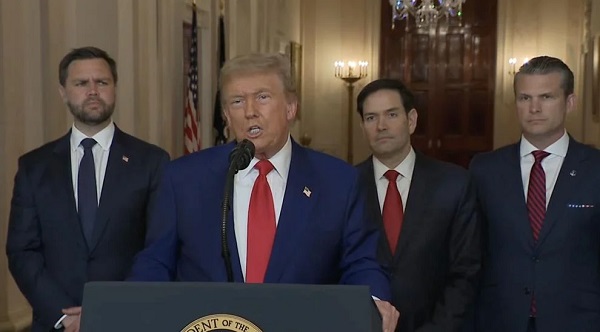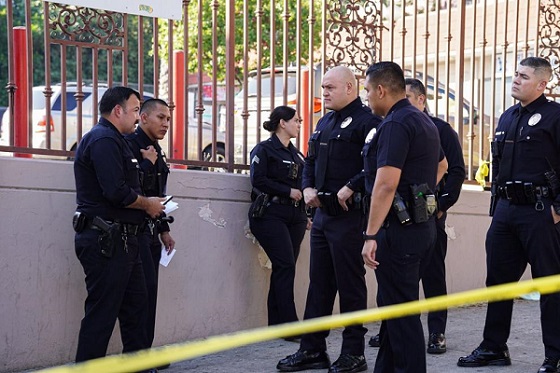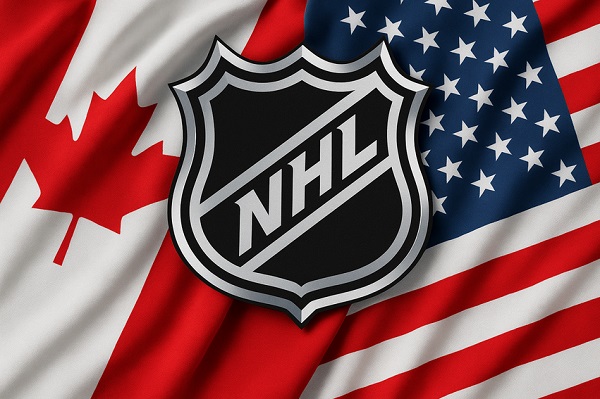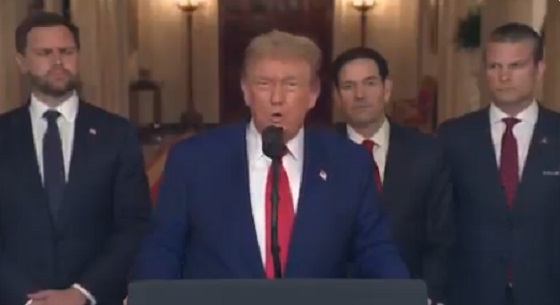Health
Trump’s surgeon general pick is a threat to Big Pharma, not medical freedom

From LifeSiteNews
By John Leake
Dr. Casey Means has faced backlash for spotlighting America’s metabolic crisis and pushing for reform of junk food production and marketing instead of the hyper-vaccination problem.
“You are what you eat,” as the old saying goes.
Anyone who visits a U.S. airport and looks around can see that something has gone terribly wrong with the metabolic health of the American people. It’s therefore an astonishing fact that President Donald Trump’s new pick for Surgeon General, Casey Means, has come under fire from all quarters for suggesting that there is something wrong with our food supply that needs to be investigated and corrected.
I get it, it’s up to the individual to avoid eating junk food. Nevertheless, it is still perfectly sensible public policy to ascertain how the American food industry deliberately engineers and encourages the consumption of junk food, especially among the young.
A thorough investigation of the American food industry could also yield sensible strategies for investing in higher quality food production. This, in turn, could revitalize America’s moribund agricultural sector. There’s a lot of talk of “bringing jobs back to America.” How about jobs producing high quality food in local markets all over the country?
I am aware of the suspicion within the medical freedom movement that Casey Means is controlled opposition for changing the subject from the real enemy of public health – namely, the hyper-vaccination of children, which is doing Lord knows what to their gastrointestinal, neurological, and metabolic health.
Though I appreciate the fact that the Vaccine-Industrial Complex is skilled at changing the subject to divert critical scrutiny away from vaccines, I have not seen any evidence that Casey Means is serving the Vaccine Cartel with her stated objective of scrutinizing the food supply.
Some of my readers have pointed out that Casey’s father, Grady Means, worked in President Gerald Ford’s administration as an assistant to Vice President Nelson Rockefeller, and that this should be regarded as evidence that she is serving undeclared interests. One should remember that it was the Ford Administration that quickly pulled the Swine Flu vaccine off the market after reports that about 25 people had died after receiving the shots and a few hundred developed Guillain-Barre.
Moreover, the fact that one’s family has worked for U.S. government institutions is not evidence that one is compromised by nefarious interests. A notable example of this was young Tyler Shultz, who blew the whistle on Theranos, even though his grandfather – former Secretary of State George Shultz – was an investor in the bogus blood testing company and was extremely unhappy about his grandson’s decision.
Secretary Kennedy supports her, and he has done more than anyone in the public forum to raise concern about vaccine safety.
People frequently ask me why Secretary Kennedy isn’t working faster to counter the unwarranted influence of Vaccine-Industrial Complex. This strikes me as the equivalent of complaining that Indiana Jones didn’t escape from the Well of Souls fast enough.
Secretary Kennedy has entered one of the largest dens of venomous serpents ever erected. It’s going to take him a while to slash through it.
Reprinted with permission from Focal Points.
Brownstone Institute
FDA Exposed: Hundreds of Drugs Approved without Proof They Work

From the Brownstone Institute
By
The US Food and Drug Administration (FDA) has approved hundreds of drugs without proof that they work—and in some cases, despite evidence that they cause harm.
That’s the finding of a blistering two-year investigation by medical journalists Jeanne Lenzer and Shannon Brownlee, published by The Lever.
Reviewing more than 400 drug approvals between 2013 and 2022, the authors found the agency repeatedly ignored its own scientific standards.
One expert put it bluntly—the FDA’s threshold for evidence “can’t go any lower because it’s already in the dirt.”
A System Built on Weak Evidence
The findings were damning—73% of drugs approved by the FDA during the study period failed to meet all four basic criteria for demonstrating “substantial evidence” of effectiveness.
Those four criteria—presence of a control group, replication in two well-conducted trials, blinding of participants and investigators, and the use of clinical endpoints like symptom relief or extended survival—are supposed to be the bedrock of drug evaluation.
Yet only 28% of drugs met all four criteria—40 drugs met none.
These aren’t obscure technicalities—they are the most basic safeguards to protect patients from ineffective or dangerous treatments.
But under political and industry pressure, the FDA has increasingly abandoned them in favour of speed and so-called “regulatory flexibility.”
Since the early 1990s, the agency has relied heavily on expedited pathways that fast-track drugs to market.
In theory, this balances urgency with scientific rigour. In practice, it has flipped the process. Companies can now get drugs approved before proving that they work, with the promise of follow-up trials later.
But, as Lenzer and Brownlee revealed, “Nearly half of the required follow-up studies are never completed—and those that are often fail to show the drugs work, even while they remain on the market.”
“This represents a seismic shift in FDA regulation that has been quietly accomplished with virtually no awareness by doctors or the public,” they added.
More than half the approvals examined relied on preliminary data—not solid evidence that patients lived longer, felt better, or functioned more effectively.
And even when follow-up studies are conducted, many rely on the same flawed surrogate measures rather than hard clinical outcomes.
The result: a regulatory system where the FDA no longer acts as a gatekeeper—but as a passive observer.
Cancer Drugs: High Stakes, Low Standards
Nowhere is this failure more visible than in oncology.
Only 3 out of 123 cancer drugs approved between 2013 and 2022 met all four of the FDA’s basic scientific standards.
Most—81%—were approved based on surrogate endpoints like tumour shrinkage, without any evidence that they improved survival or quality of life.
Take Copiktra, for example—a drug approved in 2018 for blood cancers. The FDA gave it the green light based on improved “progression-free survival,” a measure of how long a tumour stays stable.
But a review of post-marketing data showed that patients taking Copiktra died 11 months earlier than those on a comparator drug.
It took six years after those studies showed the drug reduced patients’ survival for the FDA to warn the public that Copiktra should not be used as a first- or second-line treatment for certain types of leukaemia and lymphoma, citing “an increased risk of treatment-related mortality.”
Elmiron: Ineffective, Dangerous—And Still on the Market
Another striking case is Elmiron, approved in 1996 for interstitial cystitis—a painful bladder condition.
The FDA authorized it based on “close to zero data,” on the condition that the company conduct a follow-up study to determine whether it actually worked.
That study wasn’t completed for 18 years—and when it was, it showed Elmiron was no better than placebo.
In the meantime, hundreds of patients suffered vision loss or blindness. Others were hospitalized with colitis. Some died.
Yet Elmiron is still on the market today. Doctors continue to prescribe it.
“Hundreds of thousands of patients have been exposed to the drug, and the American Urological Association lists it as the only FDA-approved medication for interstitial cystitis,” Lenzer and Brownlee reported.
“Dangling Approvals” and Regulatory Paralysis
The FDA even has a term—”dangling approvals”—for drugs that remain on the market despite failed or missing follow-up trials.
One notorious case is Avastin, approved in 2008 for metastatic breast cancer.
It was fast-tracked, again, based on ‘progression-free survival.’ But after five clinical trials showed no improvement in overall survival—and raised serious safety concerns—the FDA moved to revoke its approval for metastatic breast cancer.
The backlash was intense.
Drug companies and patient advocacy groups launched a campaign to keep Avastin on the market. FDA staff received violent threats. Police were posted outside the agency’s building.
The fallout was so severe that for more than two decades afterwards, the FDA did not initiate another involuntary drug withdrawal in the face of industry opposition.
Billions Wasted, Thousands Harmed
Between 2018 and 2021, US taxpayers—through Medicare and Medicaid—paid $18 billion for drugs approved under the condition that follow-up studies would be conducted. Many never were.
The cost in lives is even higher.
A 2015 study found that 86% of cancer drugs approved between 2008 and 2012 based on surrogate outcomes showed no evidence that they helped patients live longer.
An estimated 128,000 Americans die each year from the effects of properly prescribed medications—excluding opioid overdoses. That’s more than all deaths from illegal drugs combined.
A 2024 analysis by Danish physician Peter Gøtzsche found that adverse effects from prescription medicines now rank among the top three causes of death globally.
Doctors Misled by the Drug Labels
Despite the scale of the problem, most patients—and most doctors—have no idea.
A 2016 survey published in JAMA asked practising physicians a simple question—what does FDA approval actually mean?
Only 6% got it right.
The rest assumed that it meant the drug had shown clear, clinically meaningful benefits—such as helping patients live longer or feel better—and that the data was statistically sound.
But the FDA requires none of that.
Drugs can be approved based on a single small study, a surrogate endpoint, or marginal statistical findings. Labels are often based on limited data, yet many doctors take them at face value.
Harvard researcher Aaron Kesselheim, who led the survey, said the results were “disappointing, but not entirely surprising,” noting that few doctors are taught about how the FDA’s regulatory process actually works.
Instead, physicians often rely on labels, marketing, or assumptions—believing that if the FDA has authorized a drug, it must be both safe and effective.
But as The Lever investigation shows, that is not a safe assumption.
And without that knowledge, even well-meaning physicians may prescribe drugs that do little good—and cause real harm.
Who Is the FDA Working for?
In interviews with more than 100 experts, patients, and former regulators, Lenzer and Brownlee found widespread concern that the FDA has lost its way.
Many pointed to the agency’s dependence on industry money. A BMJ investigation in 2022 found that user fees now fund two-thirds of the FDA’s drug review budget—raising serious questions about independence.

Yale physician and regulatory expert Reshma Ramachandran said the system is in urgent need of reform.
“We need an agency that’s independent from the industry it regulates and that uses high-quality science to assess the safety and efficacy of new drugs,” she told The Lever. “Without that, we might as well go back to the days of snake oil and patent medicines.”
For now, patients remain unwitting participants in a vast, unspoken experiment—taking drugs that may never have been properly tested, trusting a regulator that too often fails to protect them.
And as Lenzer and Brownlee conclude, that trust is increasingly misplaced.
- Investigative report by Jeanne Lenzer and Shannon Brownlee at The Lever [link]
- Searchable public drug approval database [link]
- See my talk: Failure of Drug Regulation: Declining standards and institutional corruption
Republished from the author’s Substack
Health
Red Deer Hospital Lottery 2025 Winners

The Red Deer Regional Health Foundation is thrilled to announce the winners of this year’s Red Deer Hospital Lottery prizes – including the Dream Home, a $100,000.00 cash prize, and Mega Bucks 50.
James Smith of Spruce View has won the $100,000.00 cash prize.
Montey Brehaut of Red Deer has won the Mega Bucks 50 jackpot, taking home $301,702.50.
The grand prize Sorento Custom Homes Dream Home, including furnishings by Urban Barn and worth $1,074,472 – has been awarded to Oscar Gunnlaugson of Sylvan Lake.
The winner announcements took place at noon on June 26 , 2025 – and was streamed live on Facebook from Red Deer Regional Hospital Center.
“We’re excited to celebrate this year’s winners and deeply grateful to everyone who supported the lottery,” said Manon Therriault, CEO of the Red Deer Regional Health Foundation. “Funds raised will directly enhance patient care at Red Deer Regional Hospital Centre.”
This year’s lottery proceeds will fund essential new and replacement equipment, ensuring Red Deer Regional Hospital Center can continue to serve the 500,000 people who rely on it. While plans for the hospital expansion move forward, healthcare doesn’t wait. Patients in our community need access
to life-saving technology today, and supporting Red Deer Hospital Lottery has made that possible.
A full list of winners, including electronics prize recipients, will be posted on July 2 at reddeerhospitallottery.ca.
Winners will also receive instructions on how to claim their prizes by mail.
The keys to the Dream Home will be presented at a special ceremony this summer.
-

 conflict2 days ago
conflict2 days agoThe Oil Price Spike That Didn’t Happen
-

 Business1 day ago
Business1 day agoChina still squeezing rare-earth exports despite U.S. pact
-

 Business1 day ago
Business1 day agoTRUMP TARIFFS: GE Appliances brings washer manufacturing back from China
-
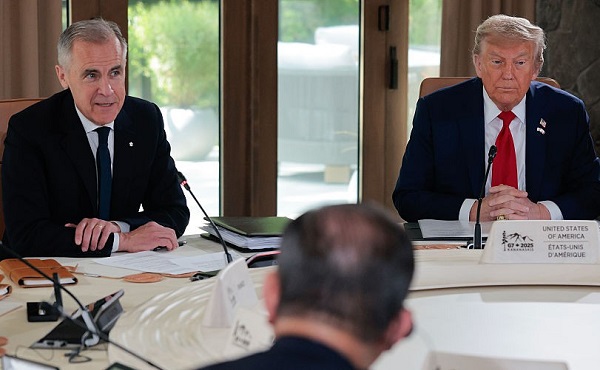
 Business1 day ago
Business1 day agoTrump announces end to trade negotiations with Canada over costly digital service tax
-
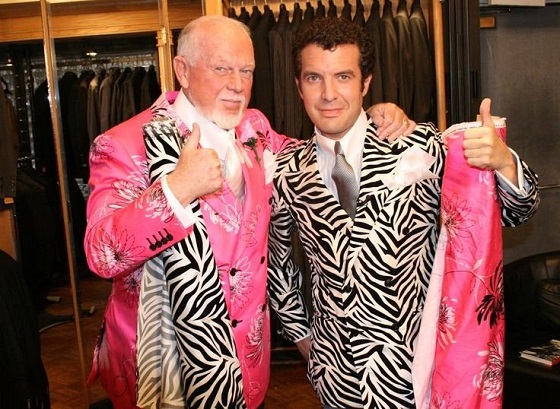
 Bruce Dowbiggin1 day ago
Bruce Dowbiggin1 day agoDon & Rick: Canadian Icons, Mixed Messages, Lasting Impacts
-

 National21 hours ago
National21 hours agoQuebec bans gender-confused inmates from requesting prison of their choice
-

 Business21 hours ago
Business21 hours agoTrump terminates trade talks with Canada over digital tax on U.S. tech
-

 Business2 days ago
Business2 days agoWorld Economic Forum Aims to Repair Relations with Schwab



